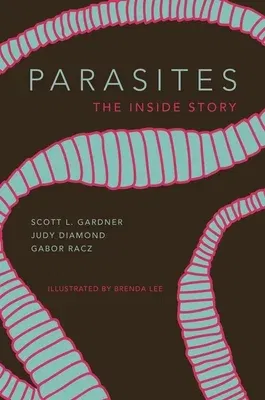An exciting look at the essential roles that parasites play in Earth's
ecosystems
This book looks at the weird and wonderful world of parasites, the most
abundant form of life on Earth. Parasites come in all forms and sizes
and inhabit every free-living organism. Parasitism is now, and always
has been, a way to survive under changing environmental conditions. From
arctic oceans to tropical forests, Scott Gardner, Judy Diamond, and
Gabor Racz investigate how parasites survive and evolve, and how they
influence and provide stability to ecosystems.
Taking readers to the open ranges of Mongolia, the Sandhills of
north-central Nebraska, the Andes of Bolivia, and more, the authors
examine the impact parasites have on humans and other animals. Using
examples of parasites from throughout the tree of life, the authors
describe parasite-host relationships as diverse as those between
trematodes and snails and tapeworms and whales. They even consider the
strange effects of thorny-headed worms on their hosts. Parasites offer
clues to the evolutionary history of particular regions, and they can
provide insights into the history of species interactions. Through
parasites, biologists can weave together a global knowledge of the past
to predict the challenges that we will face in the future.
Revealing that parasites are so much more than creepy-crawlies, this
book gives up-to-date context for these critical members of the
biological diversity of our planet.

